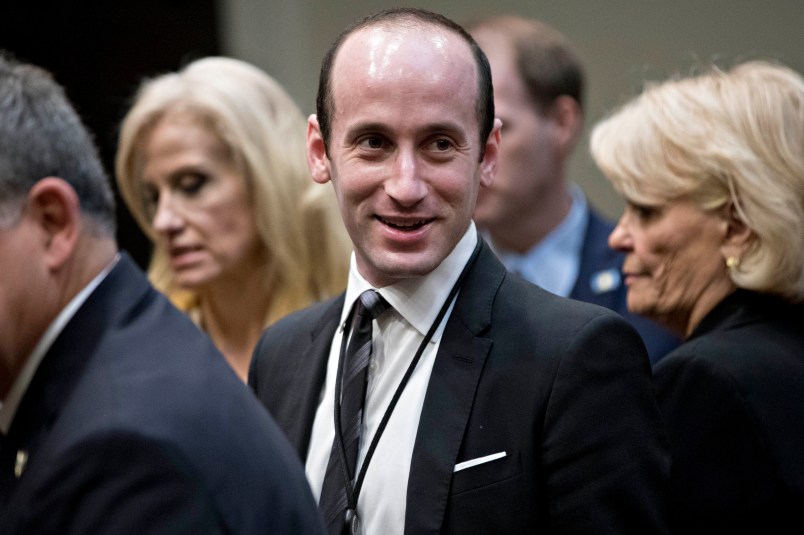President Donald Trump’s senior policy adviser said Tuesday that a re-written executive order on immigration was “still going to have the same basic policy outcome” as the original one.
The President’s original order, which suspended the United States’ refugee program and temporarily suspended travel and immigration from seven Muslim-majority countries – including indefinitely from Syria – is currently tied up in a legal battle that prevents it from being implemented. The Trump administration has said that it is working on a new order.
During a Fox News immigration town hall event Wednesday night, Stephen Miller said that “nothing was wrong with the first executive order. However, there was a flawed judicial ruling that was erroneous.”
Later, he added: “One of the big differences that you are going to see in the executive order is that it is going to be responsive to the judicial ruling, which didn’t exist previously. Those are mostly minor technical differences, fundamentally. You are still going to have the same basic policy outcome for the country but you are going to be responsive to a lot of technical issues that brought up by the court. And those will be addressed. But in terms of protecting the country, those basic policies are still going to be in effect.”
Miller also maintained that singling out seven countries in the original order – Iraq, Syria, Iran, Sudan, Libya, Somalia and Yemen – was still justified, and seemed to imply that the same countries would be singled out in the new order.
“The reality is, these seven countries were designated by President Obama and by Congress in 2015 and 2016,” he said. “The reality is that these seven countries — look at Yemen. Look at Libya. Look at Syria. Look at the conditions in these countries. This is an assessment based on the threat these countries pose today and going into the future. We have had dozens and dozens of terrorism cases from these seven countries. Case after case after case. But more fundamentally, it is the position of our intelligence community, that these countries today pose a threat to our country moving forward.”
Miller ended discussion of the order by again criticizing the Ninth Circuit Court of Appeals’ decision, which maintained a temporary suspension of the order’s implementation.
“The rulings from those courts were flawed, erroneous, and false,” he said.
Watch the exchange below, via Fox News:







